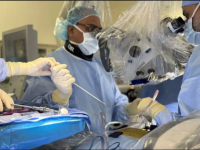In today's interconnected world, the requirement to collaborate effectively isn't just an asset but a mandatory aspect for success in both academic and professional life. Although individual expertise is still important, great performers are frequently distinguished by their ability to collaborate well with others, exchange ideas, and handle challenging interpersonal situations.
As a result of their growing awareness of this change, educational institutions are incorporating group assignments into their curricula not just as a teaching strategy but also as a conscious effort to help students develop the critical collaboration skills. In this post, we will see why is group work important in the classroom, so that students can better work on their skills for professional lives as well.
Fostering Clear Communications
Students are instantly immersed in a dynamic communication environment through group assignments. Members must develop their ability to communicate their thoughts in a clear, compelling manner so that others will understand them if they are to succeed. Speaking is only one aspect of this; understanding colleagues' viewpoints requires attentive listening.
Their ability to communicate complicated ideas succinctly is honored by this continuous information flow, which is invaluable in any professional context where knowledge and clarity are critical to accomplishing goals and preventing misunderstandings.
Navigating Diverse Viewpoints
Group assignments are a great way to navigate different points of view. Rarely will every team member agree on every facet of a project. Constructive handling of these disagreements teaches pupils how to compromise and negotiate.
They discover how to establish a medium ground that combines the best aspects of several viewpoints while advocating for their own, while staying receptive to different views. Students are prepared for cooperative problem-solving through this method, which also fosters respect for differences of opinion.
Robertson, RJ and Riggs, S., 2023.
Developing Conflict Resolution Skills
Teamwork inevitably involves conflict, and group assignments offer a low-stakes setting for honing critical conflict resolution techniques. Conflicts may emerge over individual duties, creative direction, or job division. By overcoming these obstacles, students learn how to politely and directly address problems, concentrating on the subject rather than the individual.
They gain the ability to resolve conflicts amicably, come up with solutions that work for everyone, and proceed as a unified team, transforming any setbacks into chances to improve team chemistry.
Leveraging Effective Delegation
Another important learning from group assignments is effective delegating. Pupils soon discover that the most effective technique is frequently a "divide and conquer" tactic. In order to optimize output and quality, they must evaluate each team member's strengths and shortcomings and distribute duties appropriately.
By giving people responsibility, they gain knowledge of accountability and the value of having faith in coworkers, two fundamentals of productive team leadership and management in the workplace.
Mastering Time Management
In collaborative projects, time management and mutual responsibility are inextricably intertwined. Each member's timely completion of their assigned task is critical to the team's performance as a whole. For students juggling multiple deadlines, going for approaches such as “ Pay someone to do my assignment UK ” can become a beneficial option. Students must establish realistic timetables, group deadlines, and collaborate on their individual efforts as a result of this dependency.
They develop a strong feeling of accountability to their colleagues by learning how to manage not just their personal time but also how their success affects the group's overall workflow.
(helpwithdissertation, 2021)
Enhancing Collaborative Problem-solving
By combining mental resources, group work also improves problem-solving skills. A team can come up with more possible answers to a difficult problem than a single person working alone. Students can build on each other's ideas during brainstorming sessions, which promote creative thinking. And when this collaborative approach meets the pros of professional assignment help services UK , the assignment becomes more interesting.
Students learn to appreciate and take advantage of the cognitive variety within a team to come up with creative solutions through this synergistic process, which shows that collective intelligence can frequently conquer challenges more successfully.
Understanding Team Roles & Strengths
Students who work on group projects also have a better awareness of their own responsibilities within a team. Managing the workflow and inspiring others are two traits that certain people may naturally lean toward in leadership roles. Others could be excellent researchers, imaginative thinkers, or meticulous editors.
Students gain self-awareness that is crucial for future professional growth and productive teamwork as a result of this self-discovery, which also helps them identify their own talents and how they can best contribute to a team effort.
Building Empathy
Group projects foster a strong feeling of interpersonal awareness and empathy. Students are exposed to a range of working methods, communication preferences, and personal circumstances when they collaborate closely with classmates from diverse backgrounds. They need to develop their ability to be empathetic, patient, and encouraging of their colleagues in order to work together effectively.
Building rapport and trust within a team is mostly dependent on emotional intelligence, which makes the working atmosphere more upbeat and effective for all project participants.
Practicing Constructive Feedback
Finally, these projects offer a hands-on experience in providing and receiving constructive criticism. Group projects frequently include peer review, which encourages students to carefully consider each other's contributions.
Through this process, they learn how to provide constructive criticism instead of harsh criticism and, equally important, how to take criticism well. Because it promotes a culture of excellence and mutual progress, this ability is essential for ongoing personal and professional development.
Conclusion:
To sum up, group assignments are much more than just a straightforward academic exercise; they are an essential part of preparing for the modern world. Students who work together on projects develop a wide range of abilities that greatly value employers, such as strategic planning, communication, and dispute resolution.
They gain knowledge on how to handle shared duties, value other viewpoints, and use group strengths to accomplish shared objectives. These experiences play a crucial role in developing well-rounded people who are skilled at negotiating the challenges of teamwork in addition to having subject-matter expertise, setting them up for prosperous and influential careers.





















0 Comments